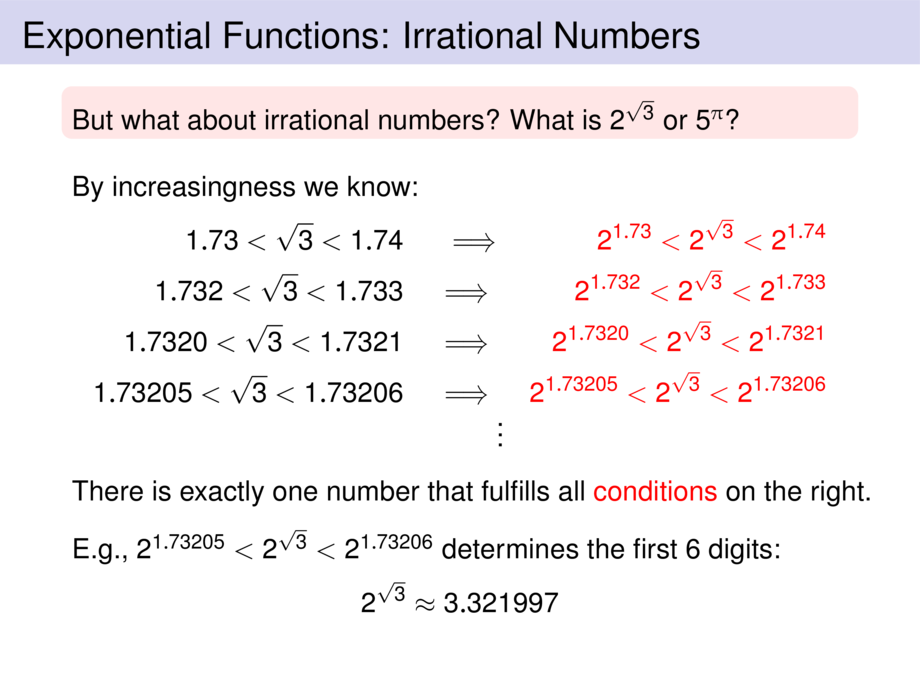



































































































129/353
\begin{frame}
\frametitle{Exponential Functions: Irrational Numbers}
\begin{alertblock}{}
But what about irrational numbers?
What is $2^{\sqrt{3}}$ or $5^\pi$?
\end{alertblock}
\bigskip
\pause
By increasingness we know:
\begin{talign}
1.73 < \sqrt{3} < 1.74 &&\implies&& \alert<7->{2^{1.73} < 2^{\sqrt{3}} < 2^{1.74}} \\
\mpause[1]{1.732 < \sqrt{3} < 1.733} &&\mpause[1]{\implies}&& \mpause[1]{\alert<7->{2^{1.732} < 2^{\sqrt{3}} < 2^{1.733}}} \\
\mpause[2]{1.7320 < \sqrt{3} < 1.7321} &&\mpause[2]{\implies}&& \mpause[2]{\alert<7->{2^{1.7320} < 2^{\sqrt{3}} < 2^{1.7321}}} \\
\mpause[3]{1.73205 < \sqrt{3} < 1.73206} &&\mpause[3]{\implies}&& \mpause[3]{\alert<7->{2^{1.73205} < 2^{\sqrt{3}} < 2^{1.73206}}} \\[-1ex]
&& \mpause[4]{\vdots} &&
\end{talign}
\pause[7]\vspace{-2ex}
There is exactly one number that fulfills all \alert{conditions} on the right.\hspace*{-.5cm}
\pause\bigskip
E.g., $2^{1.73205} < 2^{\sqrt{3}} < 2^{1.73206}$ determines the first $6$ digits:
\begin{talign}
2^{\sqrt{3}} \approx 3.321997
\end{talign}
\vspace{10cm}
\end{frame}

